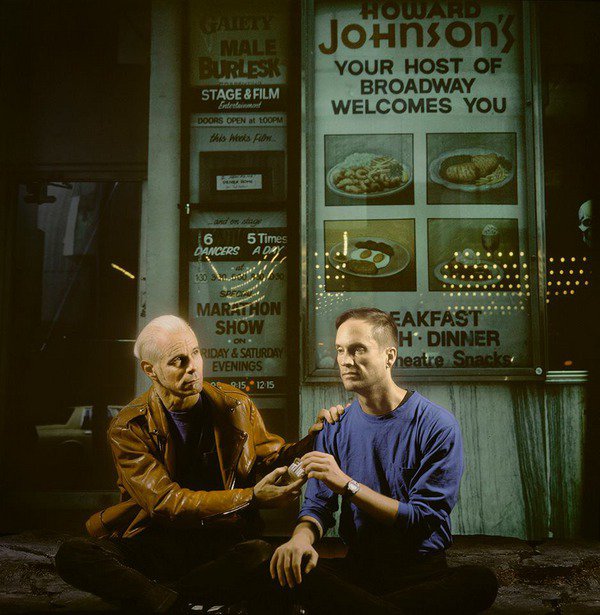Josef Astor
dal 30/5/2015 al 11/7/2015
Segnalato da
30/5/2015
Josef Astor
Participant INC, New York
Displaced Persons. For the exhibition the artist presents twenty-four works made outside the commercial realm: largely unpublished photographs of artists and performers who subverted the stereotype and the artifice of the icon in the late 1980s, '90s, and '00s.

Curated by Antony
PARTICIPANT INC is proud to present Josef Astor,
Displaced Persons, a solo exhibition of photographs, curated by the artist’s longtime
friend and subject, Antony. Best known for his decades of work as a photographer for
Vanity Fair, The New York Times, and other media outlets, Astor’s exhibition features
twenty-four works made outside the commercial realm: largely unpublished photographs
of artists and performers who subverted the stereotype and the artifice of the icon in
the late 1980s, ‘90s, and ‘00s.
Whether a studio portrait or a screen projection tableau, displaced refers to the
physical outsidedness and anti-establishments these artist-subjects created, operated
within, and, most importantly, made visible and public. Offering a rare opportunity to
see Astor’s experimental work, the exhibition foregrounds conceptions of community
that value the uncommon; and subjects who authored alternative contexts, depicted here
not only as subject matter, but also as testament to Astor’s category-defying
collaborations with friends and fellow artists.
Evidenced in several of the portraits of figures such as Dancenoise (Anne Iobst and
Lucy Sexton), John Kelly, Charles Atlas, Joe Westmoreland, Johanna Constantine, and
many others, an incongruous juxtaposition of representation and setting is achieved.
Through a mode of 'cut and paste,' by way of a screen projection technique, several
facets of being are portrayed. A prime example of Astor’s complex construct of a dual
existence—of here and elsewhere—is revealed in the portrait, Page + Wid (1999). A
personal muse, gender pioneer, and radical performance artist who tested the limits of
her audience more than most recognized artists of the time—otherworldly Page is
pictured with her mother, set against a projected forest, holding her mother’s face as
if to faintly grasp the normative world that she eclipsed in daily life.
In addition to finding inspiration through many of his subjects, Astor’s theatrically
staged, historically informed photographs can be ascribed to the influence of two
photographers he worked with as an assistant: a sort of skewed classicism grew out of
working with Irving Penn; and the tableaux style, using in-camera low tech special
effects is a direct influence of the British theater photographer, Angus McBean.
Images that appear to reference classic studio portraiture, more than subscribe to it,
are photographs of Octavia Pemberton St. Laurent (1987) and Pearl (1994). The color
shift that is visible in most of the photographs can be attributed to Paul
Outerbridge’s personalization of his color palette. Astor’s distinct color process—one
that utilizes a cross-processing technique that creates an appearance of a removal of
color or an improperly balanced color—can be seen in Annie + Puppet (1994) and Leigh
Bowery (1993).
The exhibition also includes never published images made in collaboration with Charles
Atlas and Johanna Constantine for the magazine Dance Ink—a publication conceived as an
alternative performance space and an index of the ephemeral art form. For Dance Ink's
Winter 1993-94 issue, Atlas directed a series of portraits aiming to go beyond
traditional dance photographs, and to be about dance, while Astor introduced a
dramatic context to the set to further challenge easy categorization of any one
aesthetic or discipline.
Josef Astor launched his career in 1985 in a New York studio above Carnegie Hall after moving
from his home in Ohio. Astor’s acclaimed photography focuses primarily on subjects from the
world of music, art, architecture, dance, and theater. His photographs have appeared in Vanity
Fair, The New York Times, The New Yorker, Newsweek, Rolling Stone, among many other
publications. Widely collected and exhibited, his first solo show was at Tom Cugliani (1989),
and was included in the Vanity Fair Portraits exhibition at the National Portrait Gallery in
London (2008), and recently in The Digital Darkroom exhibition at the Annenberg Space for
Photography in L.A (2012). He directed his first documentary feature, Lost Bohemia, which
premiered in 2010 and won a Special Jury Prize at DOC-NYC Festival. Among other awards of
recognition, he was recipient of the prestigious Infinity Award from the International Center of
Photography. Astor is currently on the faculty of the School of Visual Arts in New York City and
has also taught in the MFA program at Bard College.
Image caption: Josef Astor, Joe-Ho, 1996
Press Contact:
lia@participantinc.org, 646 492 4076
Opening: Sunday, May 31, 7-9pm
Participant INC
253 East Houston Street, Ground Floor
Wed - Sun 12pm to 7pm



